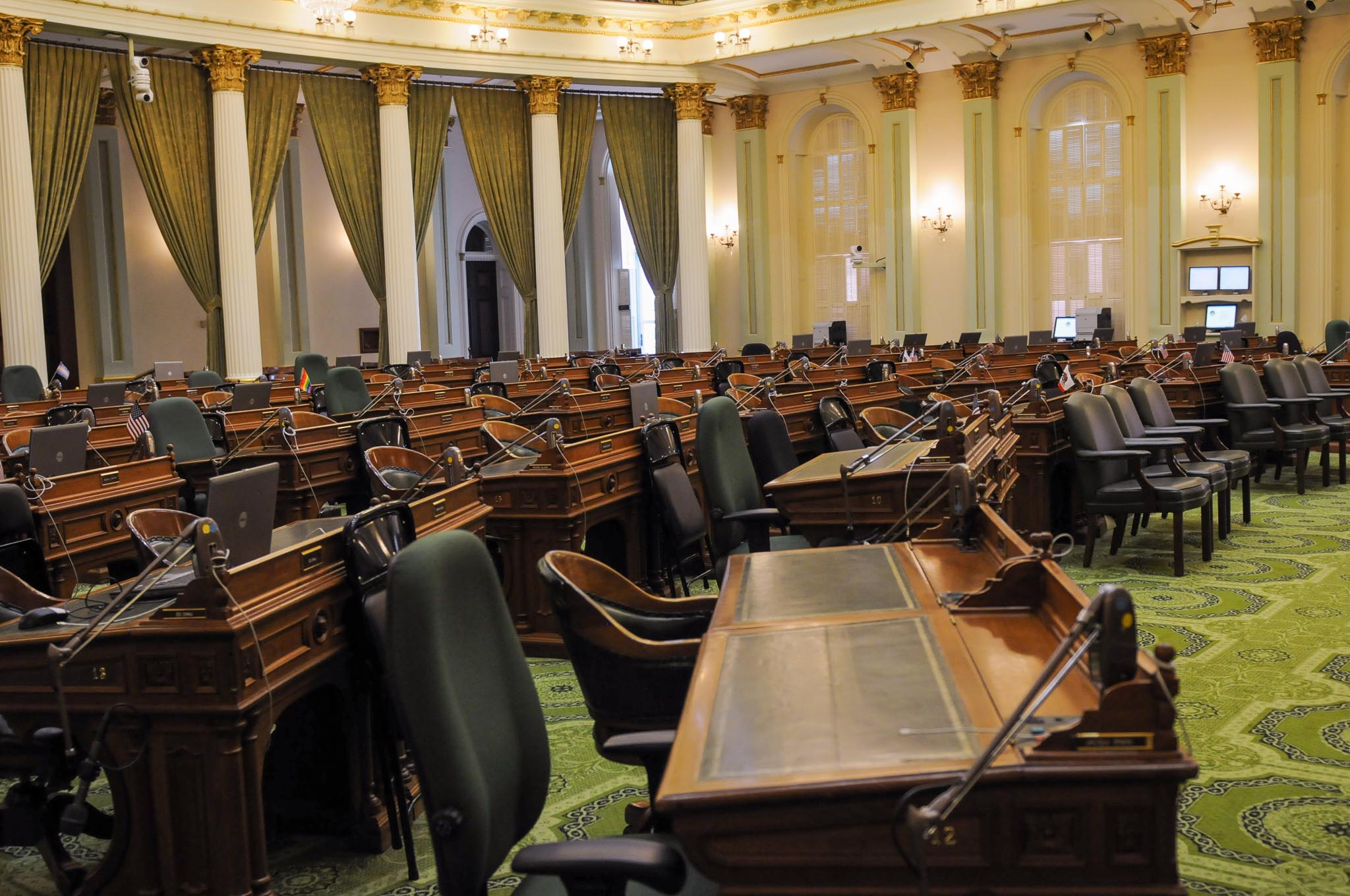
California State Capitol (Photo: Kevin Sanders for California Globe)
Contracts Against Public Policy in the Labor Code
Governmental authority has permitted and encouraged employers to organize in the corporate and other forms of capital control
By Chris Micheli, May 20, 2023 5:45 am
Labor Code Division 2, Part 3, Chapter 1 deals with “contracts against public policy.” Section 920 defines the term “promise” to mean a promise, undertaking, contract, or agreement, whether written or oral, express or implied.
Section 921 provides that every promise between any employee or prospective employee and his or her employer, prospective employer or any other person is contrary to public policy if either party thereto promises any of the following:
- To join or to remain a member of a labor organization or to join or remain a member of an employer organization,
- Not to join or not to remain a member of a labor organization or of an employer organization,
- To withdraw from an employment relation in the event that he or she joins or remains a member of a labor organization or of an employer organization.
Section 922 provides that any person or agent or officer who coerces or compels any person to enter into an agreement, written or verbal, not to join or become a member of any labor organization, as a condition of securing employment or continuing in the employment of any person is guilty of a misdemeanor.
Section 923 states that it is the public policy of California that:
- Negotiation of terms and conditions of labor should result from voluntary agreement between employer and employees.
- Governmental authority has permitted and encouraged employers to organize in the corporate and other forms of capital control.
- It is necessary that the individual workman have full freedom of association, self-organization, and designation of representatives of his own choosing, to negotiate the terms and conditions of his employment, and that he shall be free from the interference, restraint, or coercion of employers of labor, or their agents, in the designation of such representatives or in self-organization or in other concerted activities for the purpose of collective bargaining or other mutual aid or protection.
Section 925 prohibits an employer from requiring an employee who primarily resides and works in California, as a condition of employment, to agree to a provision that would either require the employee to adjudicate outside of California a claim arising in California, or deprive the employee of the substantive protection of California law with respect to a controversy arising in California.
In addition, any provision of a contract that violates this statute is voidable by the employee, and if a provision is rendered void at the request of the employee, the matter must be adjudicated in California and California law would govern the dispute.
However, this section does not apply to a contract with an employee who is in fact individually represented by legal counsel in negotiating the terms of an agreement to designate either the venue or forum in which a controversy arising from the employment contract may be adjudicated or the choice of law to be applied.
- Service of Summons in California Civil Actions - December 11, 2024
- Sunset Clause Versus Repeal Clause - December 10, 2024
- Describing a Spot Bill - December 9, 2024




